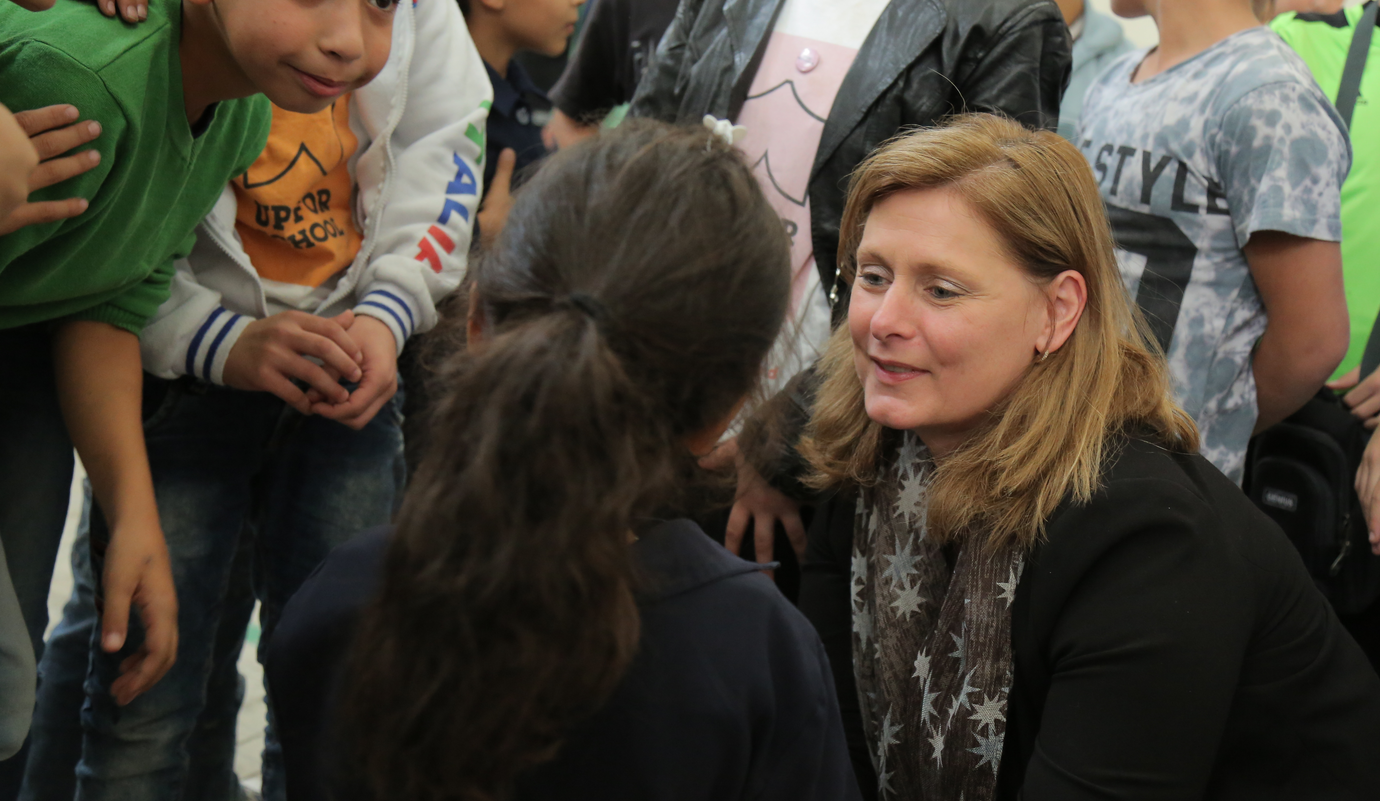
African leaders back innovative funding plan to get every child in school
Barriers to education, Education funding, Right to education
Fourteen African nations have welcomed the chance to be come "pioneer countries" who will boost investment in their own education system while getting help from the international community.
Many African countries face huge challenges when it comes to educating their children – now and in the future.
“By 2050, Africa will be home to a billion young people,” explains former Tanzanian President Jakaya Kikwete.
“By 2030, if current trends persist, only one in 10 young people will be on track to gain basic secondary-level skills in low-income countries, the majority of which are in Africa.
“Simply put, we now risk compromising the future of an entire generation.”
It’s obvious that urgent action is needed to get millions more children into school and keep them there with quality education. But how do those countries overcome the problems – many of them financial – of doing that?
There is an answer – a bold plan that could help to fund education for every girl and boy. And it’s been backed so far by the leaders of 14 African nations.
They want to become “pioneer countries” – boosting investment in their own education systems and, in return, getting extra resources from the international community.
The plan would see the launch of an International Finance Facility for Education (IFFEd) to help make up the shortfall in funding that these nations need.
In his role as a member of the global Education Commission that proposed the IFFEd, Kikwete has been visiting African presidents and prime ministers to gather support for the proposal.
In a blog this week, he wrote: “The IFFEd would not be a handout. It would support countries, many of which already invest a significant portion of their national budgets in education, in their efforts to achieve the SDG [Sustainable Development Goal] on education.
“It is the biggest, boldest and most profound step we can take to ensure that the next generation is not lost, but learning.”
He said the first step was determining which countries were willing to commit to the levels of investment and reform needed to qualify for IFFEd help.
“The leaders of all 14 countries I visited said yes,” Kikwete said. “Indeed, they not only expressed their interest in becoming pioneer countries – all of the leaders I met declared that such a breakthrough was both critical and long overdue.”

Those countries included Ivory Coast, Tunisia, Namibia, Mozambique, Ethiopia, Malawi and Uganda.
During the visit to Tunisia, President Béji Caid Essebsi said: “We are excited by the prospects of the pioneer country initiative and supportive of the commission’s International Financing Facility for Education which can release additional – and much-needed funds for countries across the African continent.”
The Education Commission spent a year investigating what can be done to ensure all children are in school and learning by 2030.
It was chaired by Gordon Brown, the United Nations Special Envoy for Global Education. At a UN briefing this week, he said the IFFEd would unlock nearly $10 billion annually for new investments in education.
Theirworld is one of a group of major charities and organisations – who also include Save the Children, Avaaz, Global Citizen and ONE – who have called on global leaders to launch the facility.
They asked the G20 countries – who will meet in Germany in July – to make education financing a top priority by urging the World Bank, regional development banks and donors to establish the IFFEd.
The mechanism would complement – not replace – the existing global education financing structures.
More news

